
Spelt vs. Wheat
"Spelt" and "spelled" are both past tense forms of the verb "spell," which means to write or name the letters making up a word in the correct order. The main difference between the two spellings is their geographical usage. In British English, both "spelt" and "spelled" are commonly used, but "spelt" is more prevalent.
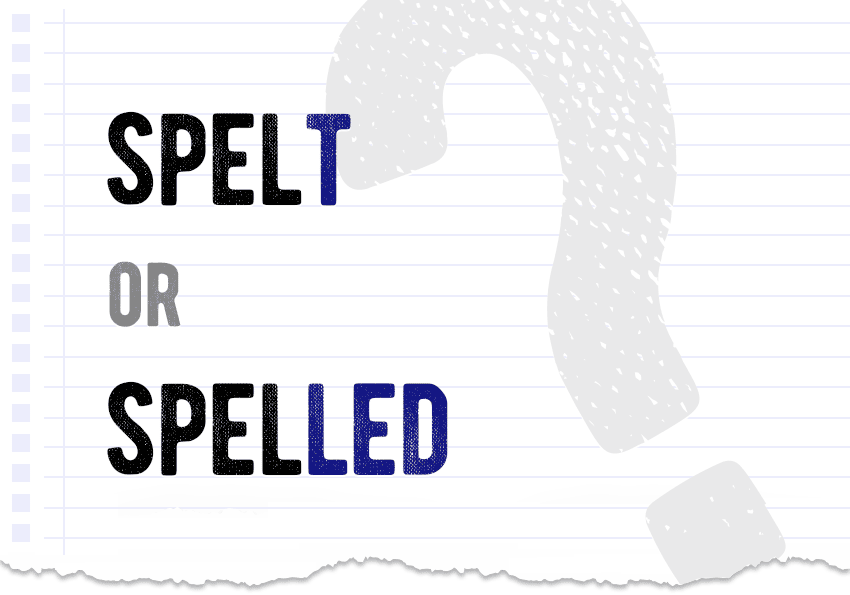
Spelt or spelled which form is correct? What is the difference?
Spelt and spelled are two different spellings of the past tense of the verb 'spell', used to refer to the act of writing or saying letters in a specific order to form a word. The spelling tends to vary based on whether you're using UK or US English: In UK English, both 'spelled' and 'spelt' are commonly used.
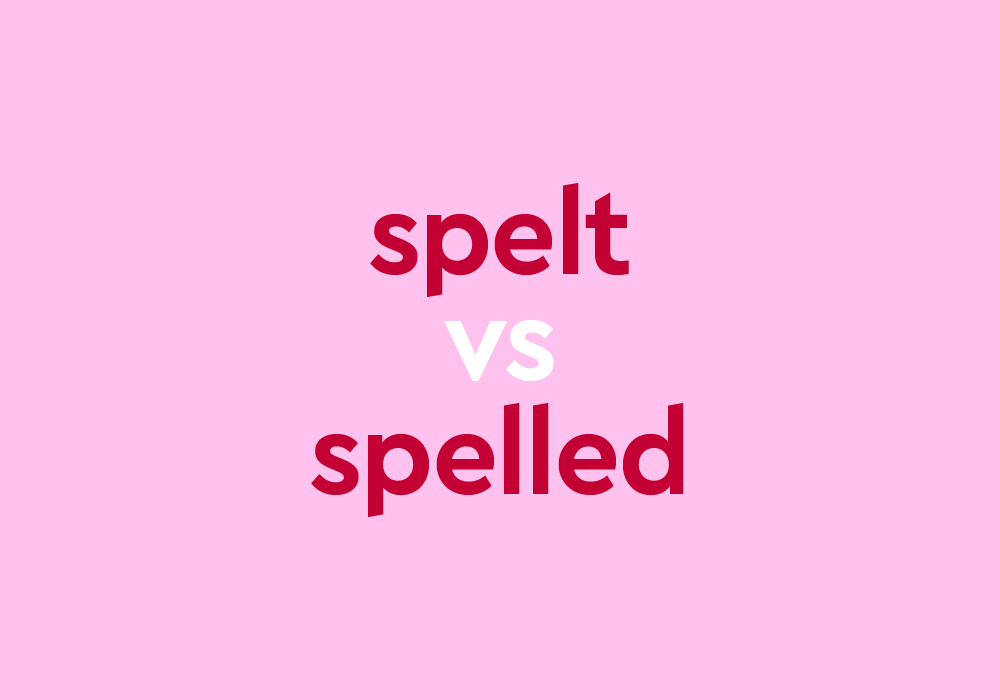
Spelt Or Spelled? What’s The Past Tense Of Spell?
Is it Spelt or Spelled If you want to say how you ordered letters to form a word, would you express that you spelt the word or spelled it? For many of us, both versions might feel as if they are the same, so how can you choose the right one? We'll address that for you here. Should You Write Spelt or Spelled? Let's start with the quick answer.
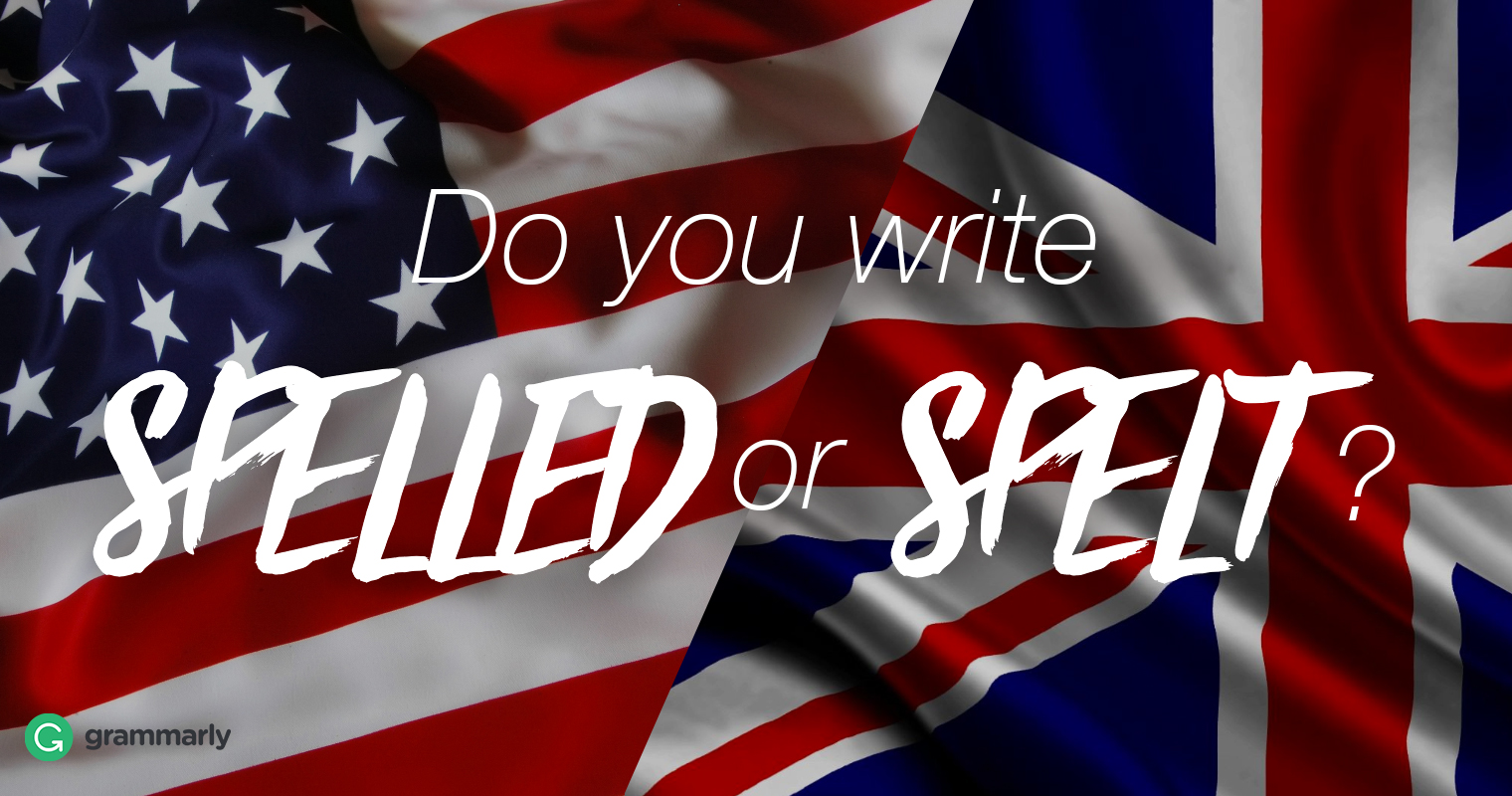
Spelled or Spelt? Depends on Where You Live Grammarly
Spelt or Spelled? English spellings are nearly always the same wherever English is the first language, but there are exceptions.. Spelt and spelled can both be the past tense of the verb spell.Generally, both endings are used in British English, but the ed ending is much more common in American English.. In the history of the written word, spellings have been standardized only relatively recently.

orthography "Spelt" vs. "spelled" English Language & Usage Stack Exchange
Spelt or spelled? Alanna Madden January 23, 2021 Grammar Tips Spelled and spelt are both past tense/past participles of the verb "spell," although North American English prefers "spelled." British English uses "spelled" or "spelt." Your writing, at its best Compose bold, clear, mistake-free, writing with Grammarly's AI-powered writing assistant
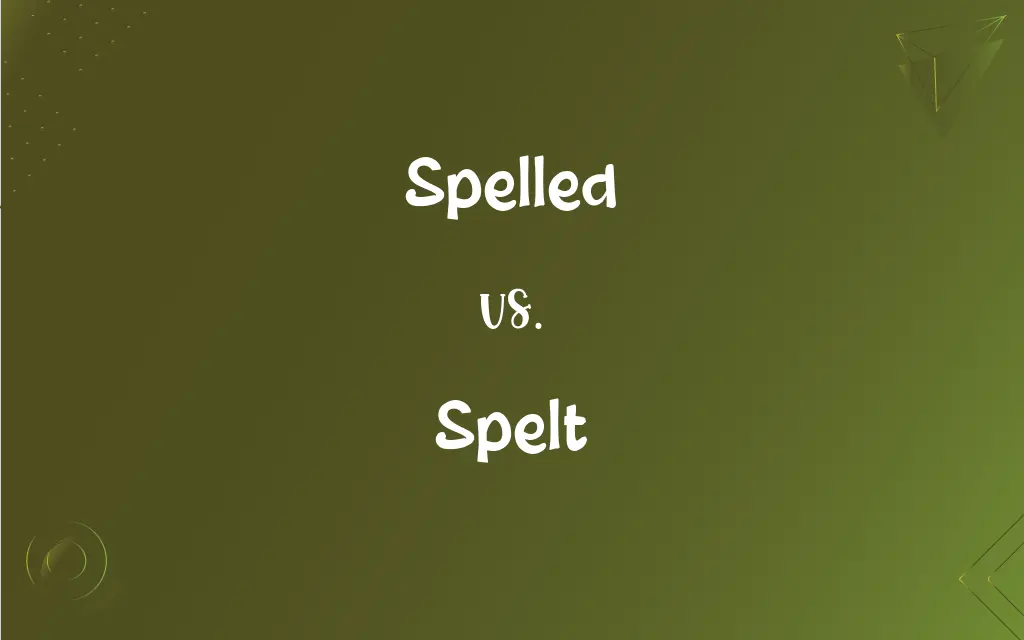
Spelled vs. Spelt
The verb to spell most commonly means to write or name the letters that form a word in correct sequence. To spell is one of those verbs with both an irregular form and a regular form. (See the table below for some others.) The past tense and the past participle can be written as either spelled or spelt.

Difference between spelled and spelt YouTube
Is it spelt "spelled," or what is the right way to use and spell the word? Although the letters are a little different, is there anything distinguishing spelled or spelt? If you want to become a better writer, understanding the difference between spelt/spelled is crucial (and there are subtle differences between spelt/spelled).

'Spelt' or 'Spelled' What's the Difference Between the Two?
Spelled Or Spelt? Which One To Use? - Mr Greg's English Cloud Spelled Or Spelt? Which One To Use? Written by Mr. Greg in Educational Articles, English Language, Phonics The spelled or spelt controversy concerns the past tense and past participle of the verb spell. Spelt also refers to an ancient grain related to wheat, barley, and rye.

8 Health Benefits of Spelt
For American English, "spelled" is the correct word order. So, you would say: She spelled the wrong word. But, for British English, "spelt" would be correct. However, it's also acceptable to use "spelled," albeit less frequently. Therefore, in this context you would say: She spelt the wrong word. Take note that it does seem as.

Spelt or spelled What’s the difference? The Word Counter
spelling & vocabulary Spelled or Spelt? What Is the Difference between "Spelled" and "Spelt"? "Spelled" and "spelt" are interchangeable in the UK, but not in the US. Here is some guidance: If you're following US writing conventions, use "spelled." If you're following UK writing conventions, you can use "spelled" or "spelt."

Spelt or spelled What’s the difference? The Word Counter
April 7, 2023 Spelt Vs. Spelled Examples Similar Words Quick summary The verb spell has two correct past tense forms. The past tense spelled is preferred in American English, while either spelled or spelt is acceptable in British English. Spelling every word correctly isn't always easy.

Spelt v. spelled & other similar English verbs Yolaine Bodin
Confusing Words Spelled vs. Spelt In the English language, the word spell is a verb and has a meaning to write or name letters from which a word has been formed. These two words spelled and spelt, both are the forms of the past tense and the past participle tense of word 'spell'.
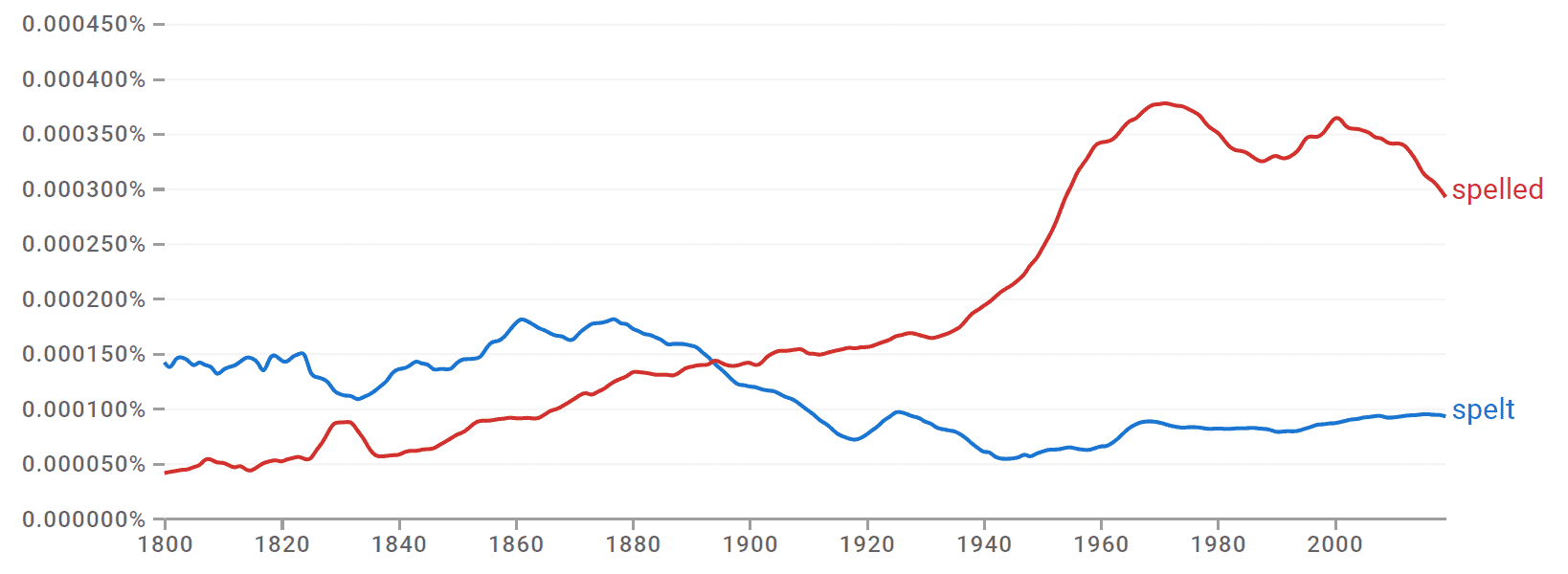
Spelt or Spelled Difference & Examples
I talked. Speak is an example of an irregular verb. It completely changes when it forms the past tense. I speak. I spoke. Well, the verb to spell is actually an English verb that has both a regular and an irregular form. I spell. (Present) I spelt. (Past) I spelled. (Past) Both of these forms are correct, but they're not always interchangeable.
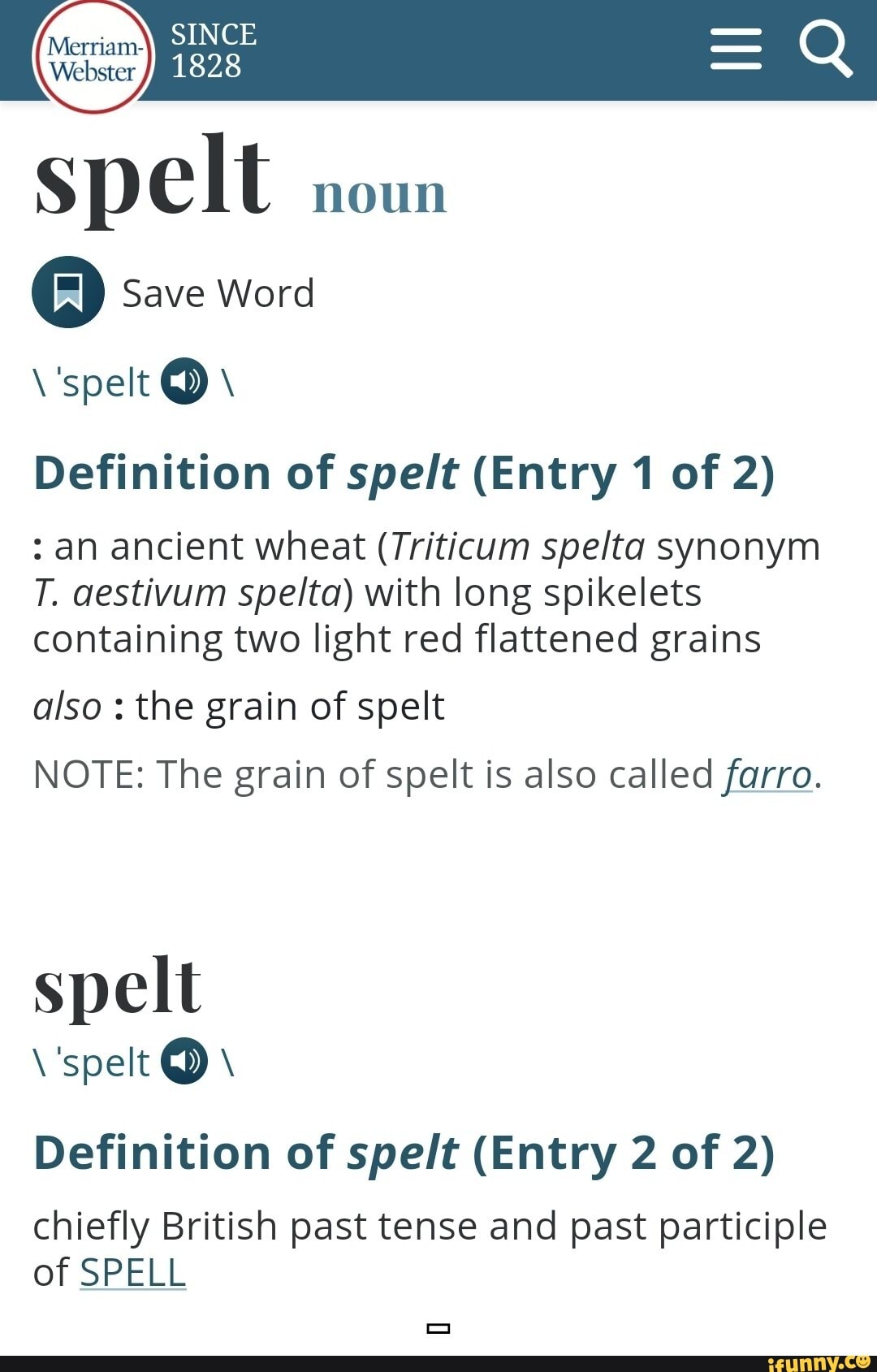
Spelt noun © Save Word Definition of spelt (Entry 1 of 2) an ancient wheat (Triticum spelta
Other Meanings for Spelled and Spell Yes, spelled is the past tense of spell. But it's also a verb when talking about using magical spells. If a witch put a curse on you, she 'spelled' the curse or 'spelled' magic. Also, you can use the noun spell to describe taking a break. "I sat down for a spell."

"Spelled" vs. "Spelt" in the English Grammar LanGeek
Spelled vs spelt: In American English, spelt primarily refers to the hardy wheat grown mostly in Europe, and the verb spell makes spelled in the past tense and as a past participle. In all other main varieties of English, spelt and spelled both work as the past tense and past participle of spell, at least where spell means to form words letter.

Trishisthinkingagain is spelt spelled spelt or spelled spelt is spelled spelt in any nation
The primary meaning of the verb 'to spell' is to name or write the letters of a word in the correct order. But it can also be synonymous with "to signify." You can also pair the verb' spell' with 'out' to make the verb' spell out.' which means to explain in simple terms.